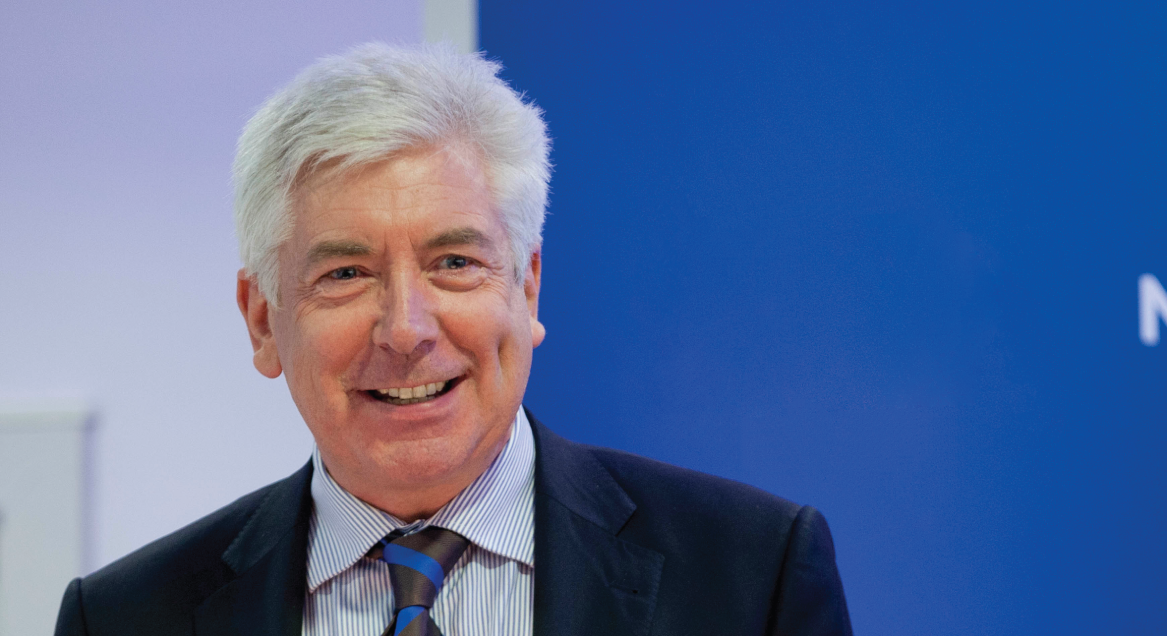THE LATEST FROM ALEX
TAKING ACTION
I was born and raised on Dublin’s northside, and now live in Terenure with my own family. This city nurtured and educated me. It is my home.
We are a great city: diverse, open and tolerant. But there is also inequality, poor infrastructure and a lack of vision for the future. That needs to change.
Decisions taken in the European Parliament over the next five years will impact greatly on our city and on the people who make it their home.
This is a critical time for our city and for Europe as a whole. I want to serve all the people of Dublin in the European Parliament upholding the values of respect, tolerance and equality.
I have a clear Vision for Dublin – where everyone has a secure home, where we cherish our precious environment, and where citizens have a real say in how their city develops. Europe can help us realise this vision.
ALEX'S STORY
Alex White was a candidate in the European Parliament elections in Dublin which took place on May 24th, 2026.
Alex is a Senior Counsel and a former TD for Dublin Rathdown. He has wide and varied experience - as a a leading practitioner at the Irish bar, as a producer with RTE, and as a trade unionist.
He has been a local councillor, a Senator, a TD, a junior Minister, and cabinet Minister for Communications, Energy and Natural Resources.
It’s been an eventful journey for Alex and here his family share his story.
Alex’s closest family and friends are acutely aware of his modest background and are keen to share his story. His political motivation to make Ireland a fairer and better country can be traced to his family’s past, and his formative years studying and working in Dublin.
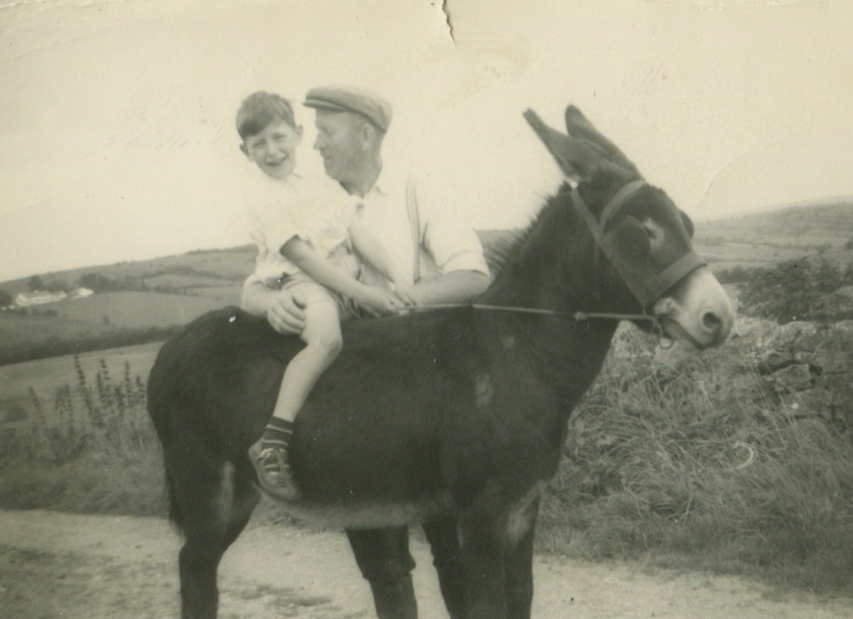
Summer holidays in Sligo
Alex White grew up in Marino on Dublin’s Northside, the eldest of seven children. His father Bob was a train driver and his mother Agatha was a clerical assistant in the Department of Social Protection before she married and started her family. His parents first met at a Legion of Mary event on Crowe Street. According to Alex’s brother Brendan, family life with seven children was “chaotic” and “as kids we were always leafleting for my Dad who was a Labour man. Whether we were leafleting for Denis Larkin, the son of Jim Larkin or for the residents’ association or for the ground rents campaign – my Dad kept us busy.”
Another brother, Bobby, who now lives in the United States, recalls: “In our family of 7 kids, Alex is the oldest and I am the second youngest. He is nine years older than me. We were not a family with the means for excursions and recreation trips but when I was young, I can remember Alex taking us on trips with him when he was working on the trains whenever he thought he was going somewhere fun. My younger brother and I would go with him and spend the day and then head back on the train. I have always recalled a wonderful day in Tramore and trips to Sligo.”
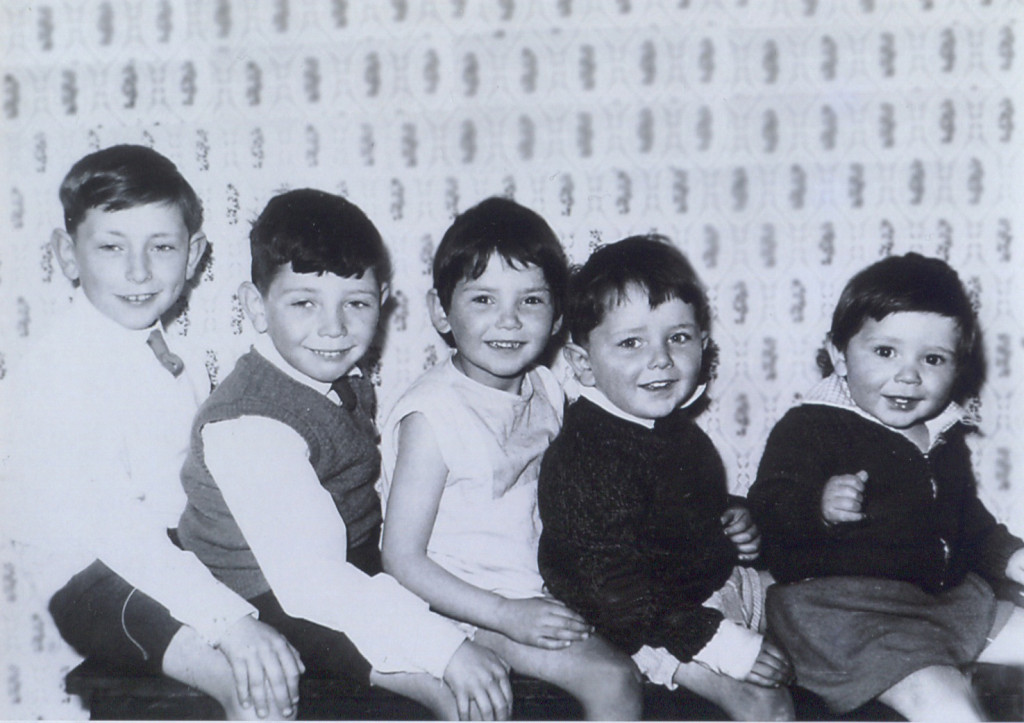 Alex with his brothers and sister in 1966
Alex with his brothers and sister in 1966
Alex was hugely influenced by his father who he canvassed with regularly for the Labour Party. Alex’s grandfather, a Clonmel man, was also a train driver, an active trade unionist and a Labour Party candidate in Dublin in the 1950s. As a result, the young Alex White was steeped in the values of social justice, equality and democracy. Alex’s brother Martin remembers the similarities between Alex and his father, “Alex was always the organiser growing up, very much like our Dad. He was very interested in civic and world affairs from a young age.”
“My earliest memories of Alex were his messy bed. We grew up in a 3 bedroom house for 9 of us and all 6 boys shared a bedroom. Alex always had books and newspapers everywhere and I used to think it was so funny. It took me years to realise that he was just always interested in reading everything he could about history, literature, and politics. His drive to further himself was always there,” says younger brother, Bobby.
Alex was always fascinated by politics. So much so, that when he was 10 years old, he and his best friend Derek McDowell regularly wrote letters to world leaders. One day a huge black car arrived from the American Embassy with a signed picture of Richard Nixon much to the surprise of Alex and his neighbours.
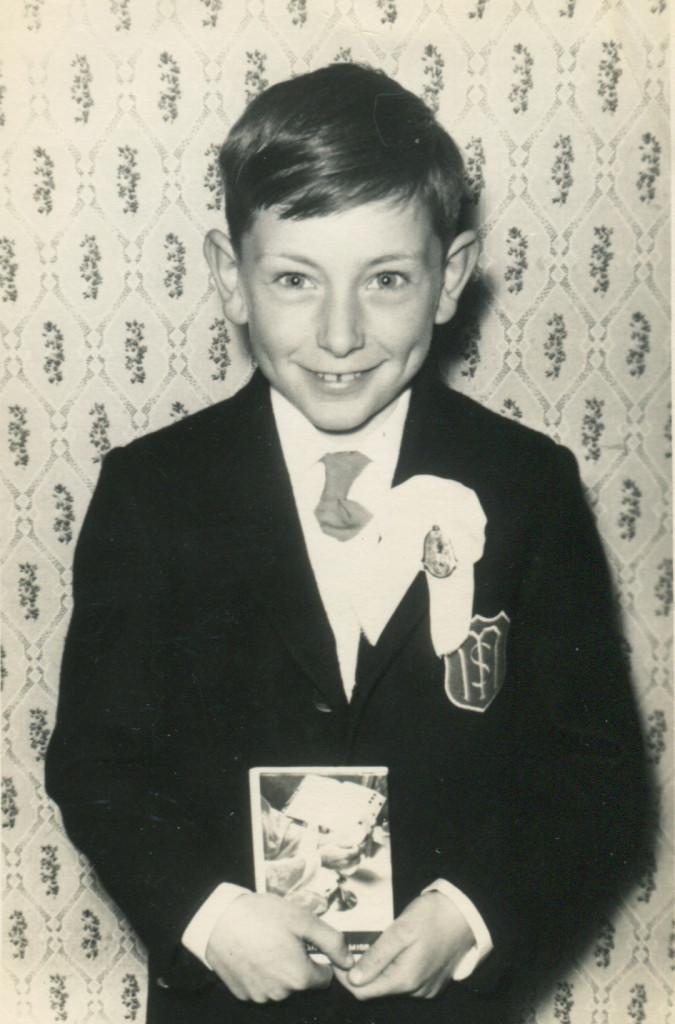 Alex on his Communion Day
Alex on his Communion Day
Alex had a great work ethic and excelled academically both in national school in Marino and at Chanel College in Coolock. He was the first person in his family to attend University. He had to work hard to pay for his education as his parents could not afford to support him financially. He worked his way through college on the train dining cars with CIE and earned a degree in Economic and Social Studies in Trinity College Dublin. As his mother Agatha remembers, “There was no such thing as grants or scholarships, so he worked summer jobs and went to London one summer when he couldn’t get work in Dublin.”
In 1979, tragedy struck when Alex’s father died suddenly. This left his mother responsible for providing for a large family. Alex, the eldest child, grew up quickly during this time and supported his mother Agatha, as she returned to work at the Department of Agriculture, while also raising her family. She remembers that: “Alex was a great help at that time. He was the oldest and he was sensible. He was twenty but I often thought he was older and more grown up than he was. He had to grow up. He was very good around that time. He was very thoughtful and supportive.”
Alex’s sister Thérese, also remembers this difficult time and the support her big brother showed her, “When my Dad died, Alex had an awful lot on his shoulders. He really was my rock and always made sure I was okay. I remember on my 18th birthday, a few weeks after Dad died, he brought me out for dinner, just the two of us. He’s always looked out for me.”
Brother Bobby recalls: “When our dad died I was only 12. His death was the most significant event in my life and it took me a long time to realise that this was also significant for Alex. From the second of my dad’s passing, Alex was there for us. He was only in his twenties and he never hesitated. He was a rock and stepped in to fill my father’s role. On the nights just after I can still see him leaning over my bunk bed checking on me. He kept us all together and helped our mother at a drop of a hat. Most especially for my younger brother Seamus and me, he made the effort to be at every important event and milestone. Birthdays and confirmations, school events, anytime, anywhere.
I recall Alex working at a petrol station at night and studying while he worked. I remember being so proud of him running for student leadership at Trinity and how hard he worked. I didn’t always understand what it all meant and how focused he was even in his youth to make a difference but I always respected him and looked up to him.”
While studying at Trinity College Dublin, Alex became heavily involved in student politics alongside Joe Duffy – who would later become one of Ireland’s leading broadcasters. Alex was elected as welfare officer and subsequently as President of the Students’ Union.
Alex White, Joe Duffy and Liam Hayes were elected together to the Students’ Union on a joint ticket. Their main focus was to bring a working class voice into the representation of students and into the corridors of power of Trinity College. They wanted to put it up to the University management and senior academics that the University was reproducing elitism and that it needed to open its doors to people from a wider spectrum of backgrounds.
Alex also promoted sexual health awareness and campaigned for access to contraception in the Students’ Union. As Alex’s brother Seamus recalls, “The Students’ Union in Trinity installed an illegal condom machine as condoms weren’t legalised until the 1980s. In 1979 A Northern Irish television channel did a report on the condom machine and they filmed a hand going into use the machine. Of course it was Alex’s hand! I remember seeing my father watching this on the television. We all recognised his hand and knew that Alex had been selected for the news item.”
According to Brendan White, “I remember my father freaking out that Alex’s grandmother might recognise his hand in the condom machine!” Alex’s mother Agatha was supportive of her son’s activism, “As parents, we didn’t mind. I was possibly more liberal than his father.”
During this time at Trinity, Alex would meet the love of his life – Mary Corcoran who is now a Professor of Sociology at Maynooth University.
Mary recalls: “I first met Alex at the Students’ Union in Trinity College in 1979. My father was a milk rounds man. I was the first of my family of six siblings to go to University and I suppose we had a natural affinity. When I first saw Alex speaking about the importance of the Students’ Union, there was something about him. It was actually his blue eyes that were hidden behind this huge curtain of black hair, this big black beard and huge glasses. Even then, his left and liberal instincts were shining through.”
They’ll be married 30 years this year and have a daughter, Maeve (26) and a son Fintan (23) .
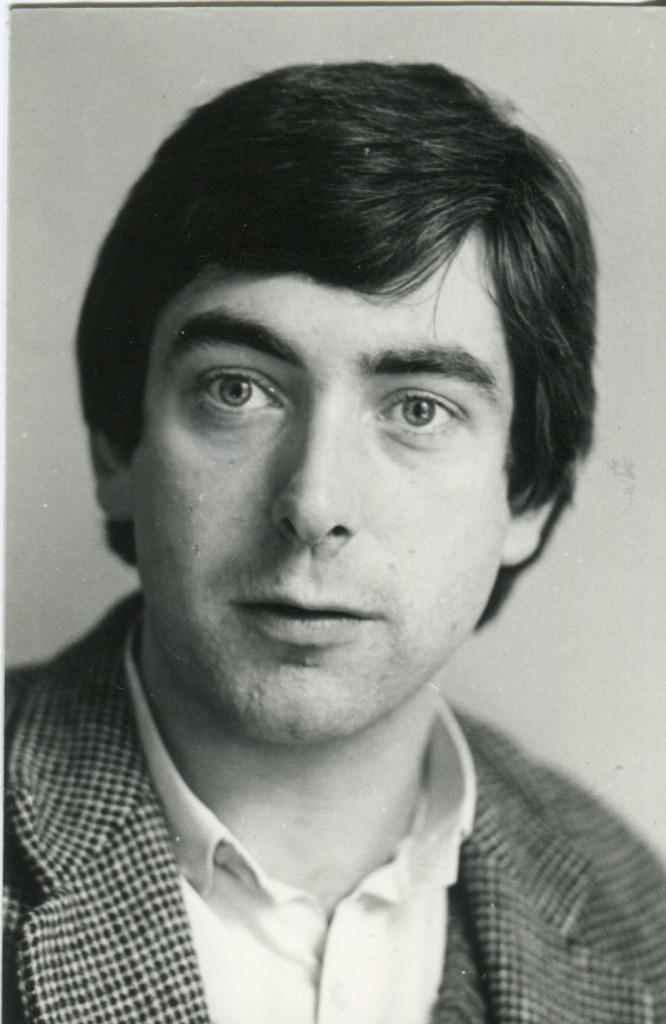 Alex when he joined RTE in 1984
Alex when he joined RTE in 1984
From the mid- 1980s to the mid-1990s, a period of social upheaval, Alex worked in RTÉ Radio as a producer on the Gay Byrne Show. During this time he returned to education at night to train as a barrister. At the bar, Alex earned a great reputation as a skilled advocate with a flair for conflict resolution and mediation. “He is incredibly measured, he is very willing to take counsel of other people but he trusts his own instincts and judgements. He takes the temperature, looks at the evidence and makes a call. He has a great capacity to make decisions and to move things on,” says his wife Mary.
When it came to social reform in Ireland, Alex lead the way, even if it proved controversial at the time. As Mary notes, “Alex is probably the most feminist man I ever met. That’s one of the reasons I was attracted to him. He has a natural belief in the equality of men and women.”
Alex worked on the referendum campaigns in both 1986 and later in 1995 which eventually lead to the introduction of divorce in Ireland.
Alex and Mary were heavily involved in the Anti-Amendment Campaign in 1983. They were both against the introduction of a constitutional ban on abortion: “1983 we both worked on the Anti-Amendment Campaign. He was hugely proud of the fact that his constituency of Dublin North-East voted against the referendum. He was the director of elections for the Anti-Amendment Campaign in his local constituency.”
According to his brother Seamus, “This was a courageous stance to take at the time. It was extremely divisive as a referendum and he really put his head above the parapet. Alex could see that the amendment was too rigid and would come back to haunt us. Thirty years on when I saw my brother negotiating the Protection of Life Bill (2013), it really brought home to me that we’re still grappling with these important issues.” Alex, Mary and their daughter Maeve all campaigned with Together for Yes to remove the constitutional ban on abortion in 2018 and pave the way for better reproductive services for women in Ireland.
His sense of justice was in evidence during his time working as a producer for RTÉ where he was an active trade unionist. One of his colleagues remembers his commitment to trade union work with SIPTU, “He was heavily involved with SIPTU during his time at RTÉ. He advocated for staff who had been unfairly treated and worked for better pay and conditions for lower paid workers in RTÉ. His negotiation skills really shone through during this time.”
As an active trade unionist he also worked hard to promote the cause of Solidarnosca Polish non-governmental trade union, founded in 1980 at the Gdańsk Shipyards by Lech Wałęsa and others.
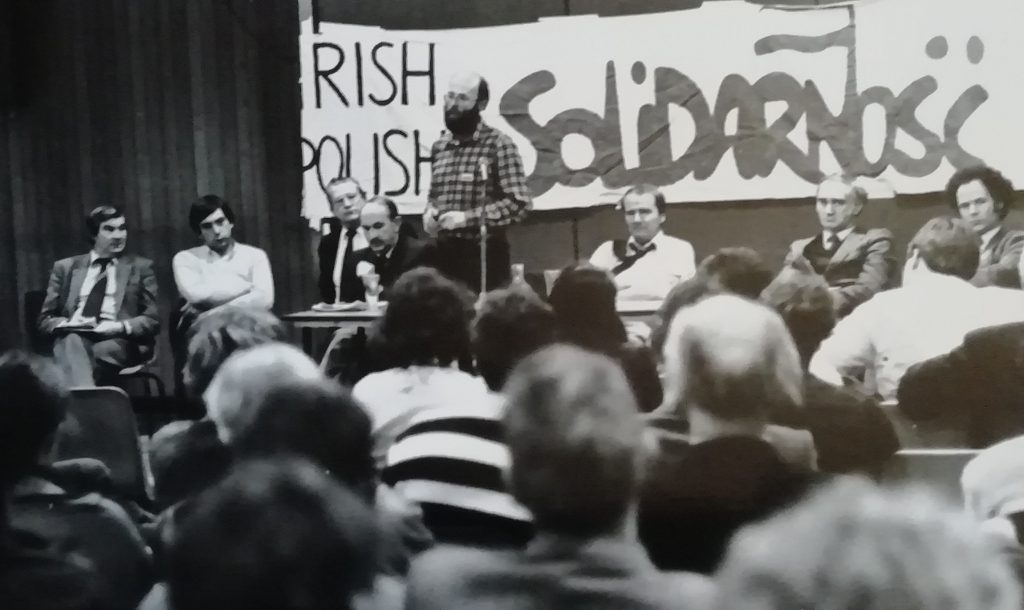
Alex also campaigned strongly against the censorship of Section 31 and worked to have it repealed. This form of censorship went completely against Alex’s liberal and democratic leanings. Michael D. Higgins, the Minister for Arts and Culture would eventually lift the Section 31 ban in 1994. As Mary recalls, “We now live in a world where that type of censorship would not be possible but when you look back it was draconian and Alex had a natural resistance to that.”
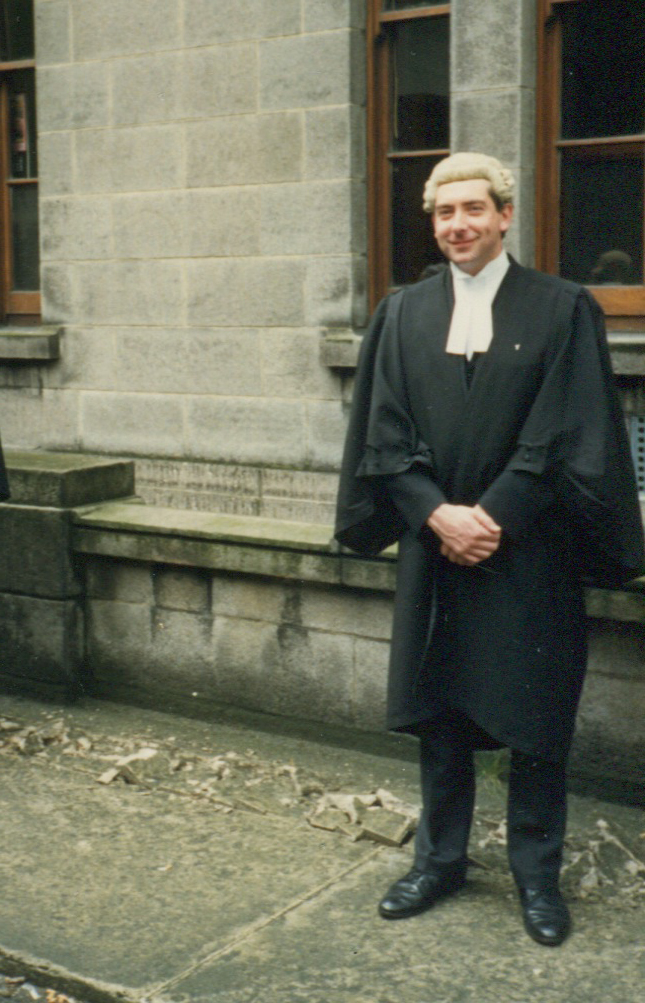
Alex was called to the Bar in 1987
While Alex built his law practice, the call to enter politics was never too far away. As Mary recalls, “In terms of politics I can remember exactly the day that Alex decided to enter politics, in June 2002. One of Alex’s closest friends Mick Crowe, who had spent time in England and was involved in the British Labour Party, died at the age of 46. I remember Alex looked at his life and said I’m not waiting. I’m going to do the thing that I really want to do which is to get involved in politics and public service. He decided that in Mick’s memory he would make that leap and do what he could to make a contribution to the Labour Party and to Irish politics. I was 100% behind him.”
Alex entered politics in 2004 as a Councillor for Rathfarnham-Terenure on South Dublin County Council. Subsequently, he was elected to the Senate in 2007 and to the Dail in 2011 where he served in a variety of capacities including as Minister for Communication, Energy and Natural Resources from 2014-2016. Although he lost his seat in the Dail in 2016 Alex has remained actively involved, helping to devise a manifesto for A New Republicin 2026, one hundred years after the Labour Party published a Democratic Programme for the fledgling Irish state.
See: https://www.labour.ie/anewrepublic/
He is also a member of Dun Laoighaire-Rathdown Council.
Alex’s decision to run for the European Parliamentary elections is grounded in his passionate commitment to advancing the social democratic cause. According to his wife, Mary, “This is about Alex contributing his skills and talents at the European level at a time of great challenges and uncertainty. Alex is a great listener and negotiator. He understands legislation. He is a strong communicator – he has the right skill set to represent the interests of the people of Dublin in the EU parliament .”
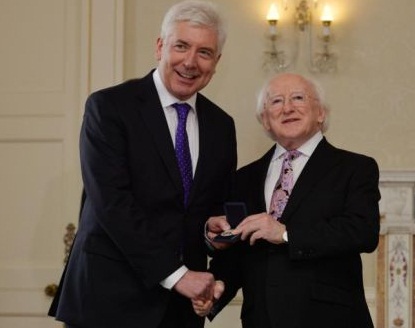
Alex has a wide knowledge and appreciation of public policy environment and decision-making processes, including detailed knowledge of the law and the regulatory environment, skills obtained as a barrister and as a public representative and Minister.
As Minister for Communications, Energy and Natural Resources, 2014-2016, Alex’s role included responsibility for telecommunications policy, broadcasting, the postal service, and progressing Ireland’s National Broadband Plan, which aims to ensure that rural Ireland will have full access to high-speed broadband. He authored and published ‘Ireland’s Transition to a Low Carbon Economy’, the government’s blueprint for energy policy in the transition from fossil fuel dependency.
As Minister of State for Primary Care, 2012-2014, Alex had responsibility, amongst other initiatives, for devising and launching Free GP Care for younger children - the first step in a planned roll-out of primary care free at the point of delivery. Also, the continued roll-out of primary care centres across the country, maintaining policy focus on healthcare in the community and responsibility for the National Drugs Strategy.
Chair, Oireachtas Committee Finance, Public Expenditure & Reform, 2011-2012 Led parliamentary scrutiny of banking and banking reform during a critical period in Ireland’s financial crisis.

